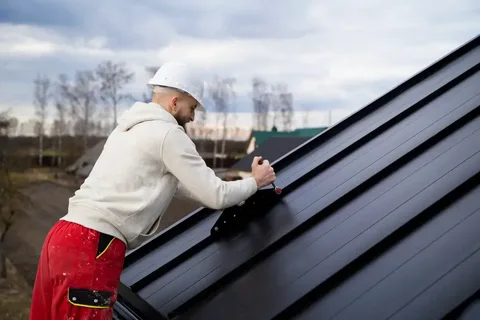When it comes to roofing, there’s more to consider than just aesthetics and durability. With the increasing focus on sustainability and energy efficiency, choosing the right roofing materials can have a significant impact on your energy bills and environmental footprint. In this guide, we’ll explore everything you need to know about selecting energy-efficient roofing options that also offer roofing repair solutions when needed.
Understanding Energy-Efficient Roofing
Energy-efficient roofing refers to materials and design techniques that help reduce the amount of heat absorbed by your home, thereby lowering cooling costs in hot climates and improving overall energy efficiency. This can be achieved through various means, including reflective surfaces, insulation properties, and proper ventilation systems. By choosing energy-efficient roofing, you not only save money on utility bills but also contribute to environmental conservation by reducing carbon emissions associated with excessive energy consumption.
Key Factors to Consider
When selecting energy-efficient roofing for your home, several factors come into play:
Material: Different roofing materials have varying levels of energy efficiency. For example, metal roofs are known for their high reflectivity, while asphalt shingles tend to absorb more heat. Consider materials such as metal, tile, or cool roofs, which are designed to reflect more sunlight and heat away from your home.
Insulation: Adequate insulation is crucial for maintaining a comfortable indoor temperature and reducing the workload on your HVAC system. Choose roofing materials that offer good insulation properties or invest in additional insulation layers to enhance energy efficiency.
Ventilation: Proper attic ventilation is essential for preventing heat buildup and moisture accumulation, which can lead to energy loss and structural damage. Make sure your roofing system includes adequate ventilation components such as ridge vents, soffit vents, and attic fans.
Durability: Energy-efficient roofing should not only save energy but also withstand harsh weather conditions and require minimal maintenance. Look for durable materials with long lifespans to ensure your investment pays off in the long run.
Emergency Roofing Services: A Crucial Consideration
While energy efficiency is important, it’s also essential to be prepared for unforeseen roofing issues such as leaks, storm damage, or structural failures. In such emergencies, timely repairs or replacements are necessary to prevent further damage to your home and belongings. That’s where emergency roofing services come in.
Whether it’s a sudden leak during a heavy rainstorm or extensive damage from a fallen tree, professional roofing repair services can provide prompt assistance to address the issue and restore the integrity of your roof. When choosing energy-efficient roofing materials, it’s wise to inquire about the availability of emergency roofing services from the manufacturer or contractor. Knowing that help is just a phone call away can offer peace of mind and ensure your home remains protected in any situation.
Tips for Choosing Energy-Efficient Roofing
Now that you understand the importance of energy efficiency and emergency roofing services, here are some tips for selecting the right roofing materials for your home:
Research Different Materials: Take the time to explore various roofing materials and their energy-saving features. Consider factors such as reflectivity, insulation R-value, and environmental impact to make an informed decision.
Evaluate Climate Considerations: Your local climate plays a significant role in determining the most suitable roofing material for your home. In hot climates, opt for reflective surfaces to minimize heat absorption, while in colder regions, focus on insulation properties to retain heat.
Consider Long-Term Costs: While energy-efficient roofing materials may have a higher upfront cost, they can lead to significant savings on energy bills over time. Calculate the potential long-term costs and benefits to determine the most cost-effective option for your budget.
Check for Rebates and Incentives: Many governments and utility companies offer rebates or incentives for installing energy-efficient roofing systems. Explore available programs in your area to maximize savings on your roofing project.
Consult with Professionals: When in doubt, seek advice from experienced roofing contractors or energy efficiency experts. They can assess your specific needs, recommend suitable materials, and provide guidance on maximizing energy savings through proper installation and maintenance practices.
By following these tips and considering both energy efficiency and emergency roofing services, you can make an informed decision when selecting roofing materials for your home. Remember that investing in high-quality, energy-efficient roofing not only benefits your wallet but also contributes to a more sustainable future for generations to come.





